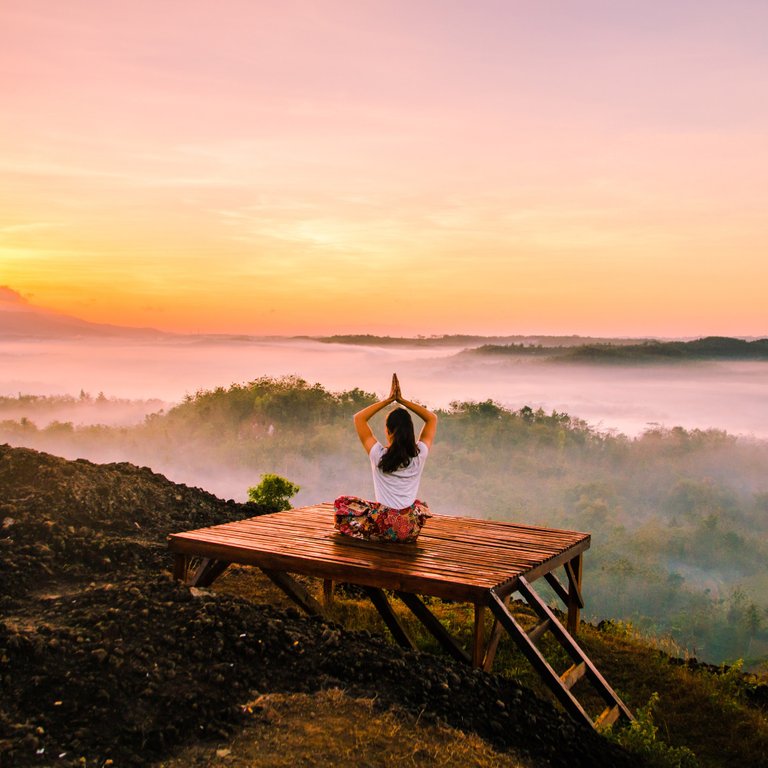
https://www.pexels.com/photo/women-s-white-top-and-orange-floral-skirt-823694/
Meditators commonly seek or report the experience of “oneness” in their meditation practice. This may include oneness of mind (e.g., a diminishment of anxiety-producing thoughts), body (e.g., a sense of stillness and unified sense of the body), and mind-body ( e.g., a blurring of boundaries between mind and body). This diminishment of dualisms and divisions is a truly remarkable feature of meditation and relaxation.
Dr. Herbert Benson is famous for his scientific studies on the “relaxation response.” Benson taught meditative techniques to introduce a state of deep relaxation in his students. Among his more interesting discoveries is that those who are deeply relaxed breathe less frequently and utilize less oxygen. He described this as a “hypometabolic state.” This caused me to wonder about the relationship between meditative oneness and hypometabolism. Namely, is oneness more than merely an altered mode of perception? Might it also contribute to an altered physiological state?
meditation relaxation
Oneness, Relaxation, & Physiology
In talking about oneness, we are talking about a deep state of relaxation and harmony with diminished psychological and physical tension. With respect to physiology, we might proceed to ask ourselves the following question: Which requires more energy, a state of physiological balance or one of increased tension? The answer to this question is obvious. When we experience inner conflict, indecision, or feel pulled in different directions, our bodily tension increases; our muscles literally become tense. This of course requires more energy than if we were relaxed, providing a theoretical explanation for Benson’s findings regarding relaxation and hypometabolism.
Health Benefits of Meditation & Relaxation
If meditation, yoga, or other mind-body practices help procure increased physiological balance or homeostasis, we should not be surprised to find them beneficial for our health and well-being. We might think of deep relaxation as a sort of reset button. With all the stress and anxiety of modern life, entering a deep state of relaxation allows all our parts to let go of their tensions and reconnect with each other. And the more we practice, the longer these connections will last and the easier it will be to restore them. In some senses, relaxation is like strengthening the bonds the hold us together. It is a restorer and renewer of life
In an intriguing and highly recommended article, Meditation as a Voluntary Hypometabolic State, Young and Taylor liken the restorative effects of meditation / relaxation to those of hibernation. They suggest that deep relaxation can help us recover the physiological benefits that so many animals enjoy, but modern humans seem to have lost. One might argue, however, that hypometabolism and its presumptive health benefits also occur during sleep. While true, practices like meditation confer an additional benefit by helping us remain more relaxed throughout the day (e.g., “relaxed awareness”), thereby mitigating the harmful effects of stress and tension. In other words, meditative practices allow us to reduce our stress response and maintain a more restful, parasympathetic state throughout our waking hours.
Thanks for your post, and welcome to steemit! This was a great introduction to some benefits, I hadn't heard of the research you mentioned. I also write on meditations, feel free to check out my blog and follow if it interests you. Here's my overview of meditation benefits:
https://steemit.com/meditation/@jspots/introduction-to-various-meditations-why-practice-meditation
thank you
Really good post!
Meditation helped me through a very stressful time. I started by reading books by mingyur rinpoche and doing the exercises. At the beginning it can be hard to meditate regularly but it is really worth it!
Again, great post! Keep it up, i am excited to read more from you! Upvoted & followed